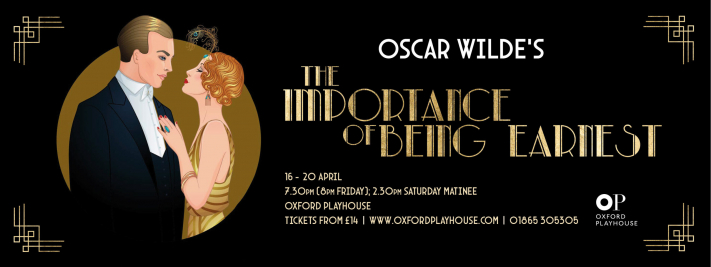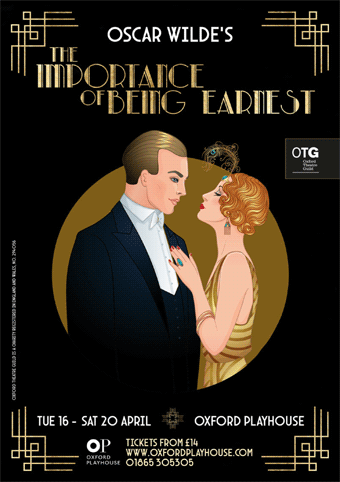When The Importance of Being Earnest was first staged in 1885, Oscar Wilde’s popularity was undeniable. This witty, romantic farce, subtitled ‘A Trivial Comedy for Serious People’ was instantly a critical success, but the play sadly became not just a high for the author’s career, but rather its climax. On opening night, the Marquess of Queensberry -the vengeful father of Wilde’s lover Alfred Douglas - planned to disrupt the show with a bouquet of rotten vegetables, but Wilde was tipped off and the Marquess was refused entry. Wilde then retaliated by suing the Marquess for libel, a profoundly miscalculated move which ultimately provided enough evidence of Wilde’s homosexuality for him to be tried and convicted on charges of gross indecency. His career would never recover, and The Importance of Being Earnest closed after only 86 performances.
Thankfully, despite this, the play was not lost to time and has continued to delight audiences for 14 further decades including most recently with Oxford Theatre Guild’s playful and smooth production at The Oxford Playhouse, which ran for 6 performances last week, and moves the action up to the 20th century, specifically the roaring twenties.
The plot concerns two best friends, Algernon ‘Algie’ Moncrieff (Billy Morton) and Jack Worthing (Alex Lushington), who have each discovered a clever hack for avoiding unpleasant situations - fictional alter egos. Jack has his incorrigible younger brother Earnest (an identity he himself assumes, in order to live a more libertine life in the city), and Algie has his forever-ailing friend ‘Bunbury’, whom he must rush away to care for. But when the poised Gwendolen Fairfax, Algie’s cousin and the object of Jack’s affection, comes to visit and declares she loves ‘Earnest’ due to the wonderful sound of his name, the tangled web Jack has woven becomes harder for him to separate himself from.
Both delightfully and preposterously, Algie finds himself in a similar predicament in the play’s second act, becoming involved with Jack’s precocious and fizzy ward Cecily, who just turned eighteen, while pretending to be (guess who) Jack’s younger brother Earnest. Elsewhere, there’s a disapproving parent, an origin story involving a misplaced handbag, and a priest with a crush. All is resolved by the time the curtains close, but there’s ample time for misunderstandings and memorable one-liners before then.
Both delightful and preposterous is a pretty apt description for the tone throughout, and Oxford Theatre Guild excels at capturing the silliness stitched together with shrewd wit. One of Wilde’s strengths was satirising the upper classes in a way that felt gleeful rather than embittering to behold. The acting here was excellent across the board. Morton and Lushington brought humorous chemistry and electricity to their banter, which was the central joy of the production. Meanwhile, Rose Mcauley teased a droll, measured humour out of every line as Gwendolen Fairfax and Matilda Hadcock brought a luminosity and infectious cheer to Cecily. Triona Adams, who was side-splittingly hilarious in OTG’s The Recruiting Officer last year, does a lot with a small role here too as Mrs Prism, Cecily’s guardian.
If I had to criticise, I’d say I don’t know how much the move to the 1920s really improved the play (although the costumes were fabulous). There was an odd teapot-shaped set piece in Act Two that seemed jarringly Alice in Wonderland-esque, and the interval, at the end of the first act (there are three acts total) was so early on in the evening that the second half weighed down by its runtime. But these are minor quibbles. The silliness of the story still inspires smiles and guffaws, and the night was an undeniably enjoyable one. In a way, this is the perfect play for a (talented) am dram company to put on, because the script lives and dies by its delivery. A win for the OTG.





